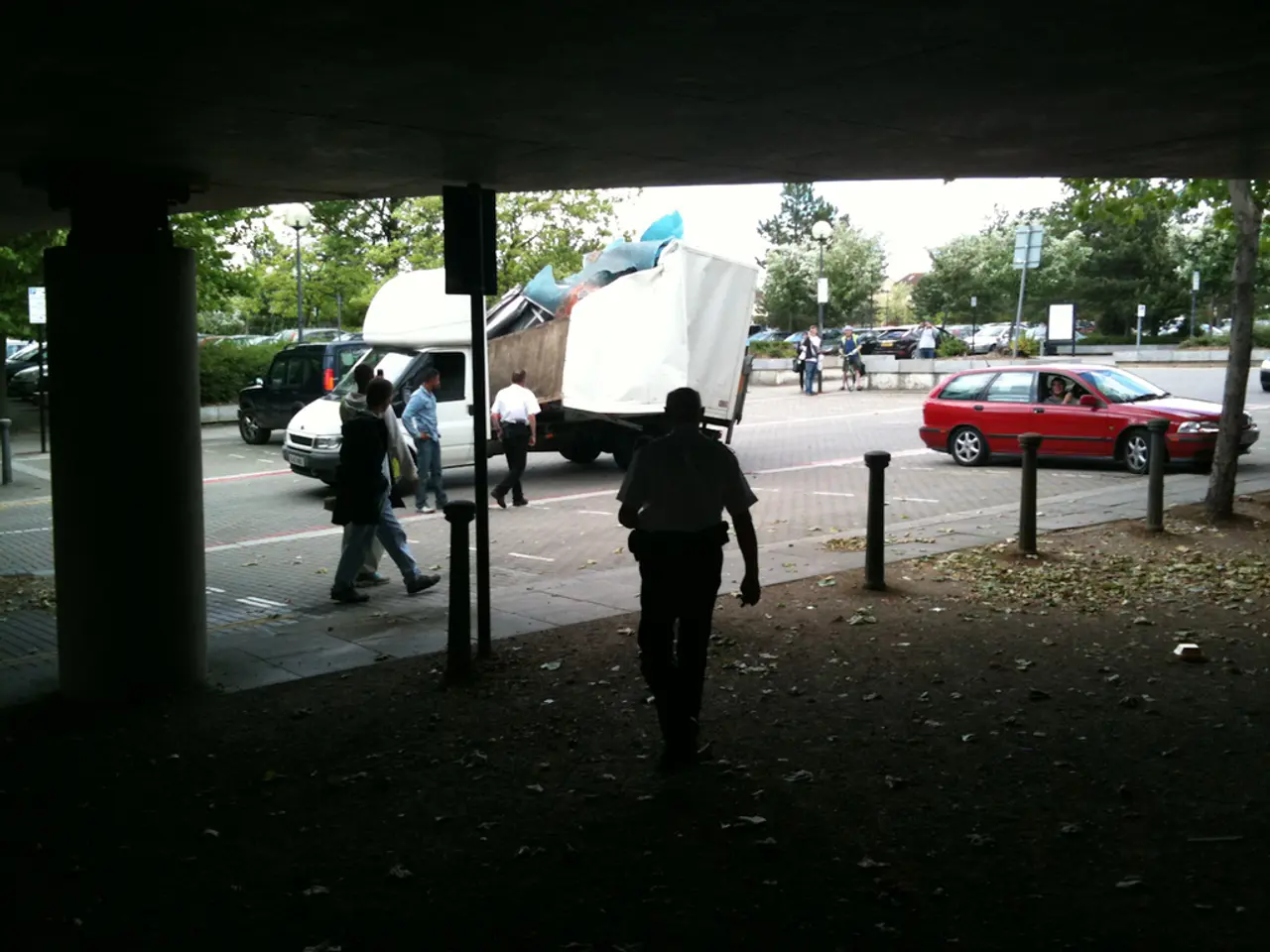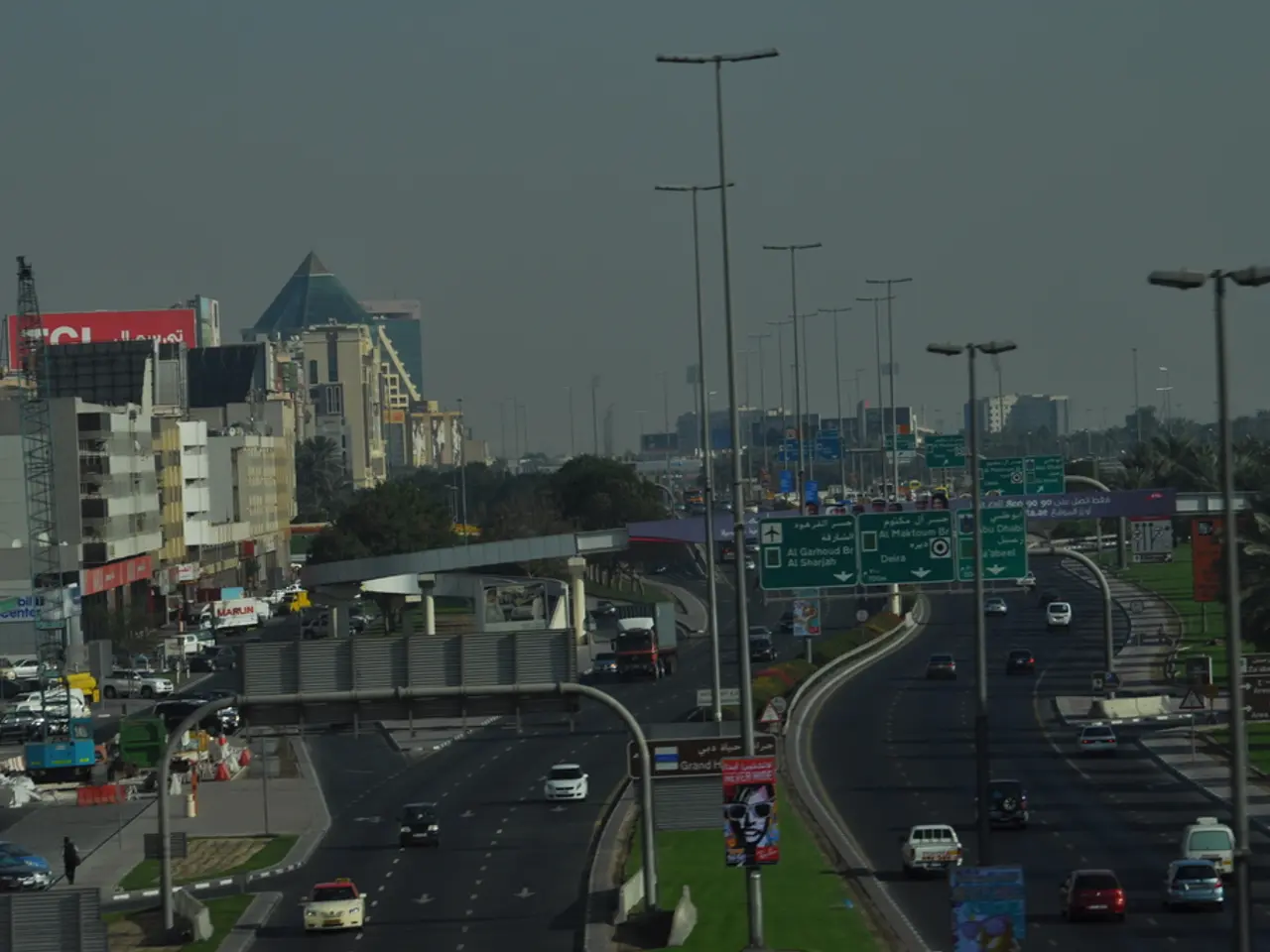Shift in Logistics Towards Hydrogen-Fueled and Electric Trucks
=========================================================================
In the race to reduce transportation emissions, battery-electric and hydrogen fuel cell trucks are emerging as promising solutions for the freight industry. The best use cases for these zero-emission vehicles depend on factors such as route length, payload needs, infrastructure availability, and cost considerations.
Battery-electric trucks (BETs) are ideal for urban and regional delivery routes with shorter distances and frequent stops. Their strengths include zero tailpipe emissions, quiet operation, and efficiency when routes fit within their battery range. These trucks rely on charging infrastructure, which is more mature in urban areas, making them practical for fleets with predictable, shorter routes.
On the other hand, hydrogen fuel cell trucks (HFC trucks) excel in longer-range, heavy-duty, and high-utilization applications, especially where payload capacity and fast refueling are critical. Their range can typically reach 400-450 miles per fill, and refueling takes around 20 minutes, making them suitable for intercity transport, just-in-time supply chains, and longer haul routes. Hydrogen trucks also maintain payload capacity better than BETs due to lighter fuel storage compared to batteries.
Logistics operators' practical decision-making involves balancing these factors under infrastructure and cost constraints. They assess route profiles, delivery requirements, and infrastructure access. For short urban routes with well-developed electric charging, BET adoption is favored. For longer runs without sufficient charging but with emerging hydrogen fueling stations, HFC trucks are preferred.
Infrastructure maturity and cost remain key constraints. Hydrogen currently costs about $12–15 per kilogram, roughly three times diesel price, which impacts fuel cost economics. Expanding refueling networks like Hyla Energy’s efforts in California and Georgia are crucial for enabling scale.
Some companies focus on partnerships and integrated solutions to reduce complexity. For example, Hyroad Energy acquired Nikola’s hydrogen fuel cell trucks and infrastructure assets to provide turnkey, pay-per-mile hydrogen trucking services, minimizing capital risks for fleet customers.
Adoption is incremental and use-case driven rather than ideological; fleets deploy BETs and HFC trucks complementarily according to where each technology fits best operationally rather than as a wholesale replacement of diesel.
In summary, battery-electric trucks are currently favored for urban and regional delivery where charging infrastructure and route predictability exist, while hydrogen fuel cell trucks serve longer-haul and heavier-duty freight where fast refueling and payload matter more. Logistics operators make choices by analyzing route economics, infrastructure availability, and cost trade-offs, often relying on partnerships and service models to mitigate upfront expenses and operational complexities.
References:
[1] CleanTechnica. (2022). The Future of Hydrogen Trucks: Opportunities and Challenges. Retrieved from https://cleantechnica.com/2022/05/27/the-future-of-hydrogen-trucks-opportunities-and-challenges/
[2] Forbes. (2022). The Hydrogen Truck Revolution: How Hydrogen Fuel Cell Electric Trucks (FCETs) Are Changing Freight. Retrieved from https://www.forbes.com/sites/forbesbusinesscouncil/2022/02/18/the-hydrogen-truck-revolution-how-hydrogen-fuel-cell-electric-trucks-fcets-are-changing-freight/?sh=5175a5d81b79
[3] Green Car Reports. (2022). Hyroad Energy to acquire Nikola's hydrogen fueling station network. Retrieved from https://www.greencarreports.com/news/1137090_hyroad-energy-to-acquire-nikolas-hydrogen-fueling-station-network
[4] Hyroad Energy. (2022). Hyroad Energy Acquires Nikola's Hydrogen Fueling Stations. Retrieved from https://hyroad.com/hyroad-energy-acquires-nikolas-hydrogen-fueling-stations/
[5] Transport & Environment. (2021). The Future of Zero-Emission Trucks: Turning Promise into Reality. Retrieved from https://www.transportenvironment.org/sites/default/files/2021-10/The%20Future%20of%20Zero-Emission%20Trucks_0.pdf
- In the analysis of logistics for reducing transportation emissions, it's essential to consider factors such as route length, infrastructure availability, and cost for both battery-electric and hydrogen fuel cell trucks in the freight industry.
- The finance sector plays a vital role in the adoption of zero-emission vehicles, as the current cost of hydrogen, about $12–15 per kilogram, is a significant constraint compared to diesel.
- Technology advancements such as Hyla Energy's efforts to expand refueling networks and integrated solutions by companies like Hyroad Energy, who recently acquired Nikola's hydrogen fuel cell trucks and infrastructure assets, help minimize capital risks for fleet customers and improve the overall transportation industry.
- As the technology and infrastructure for battery-electric and hydrogen fuel cell trucks mature, logistics operators must rely on technology and energy analysis to make informed decisions that balance route economics, infrastructure availability, and cost trade-offs for their operations, often relying on partnerships and service models to minimize complexities.




